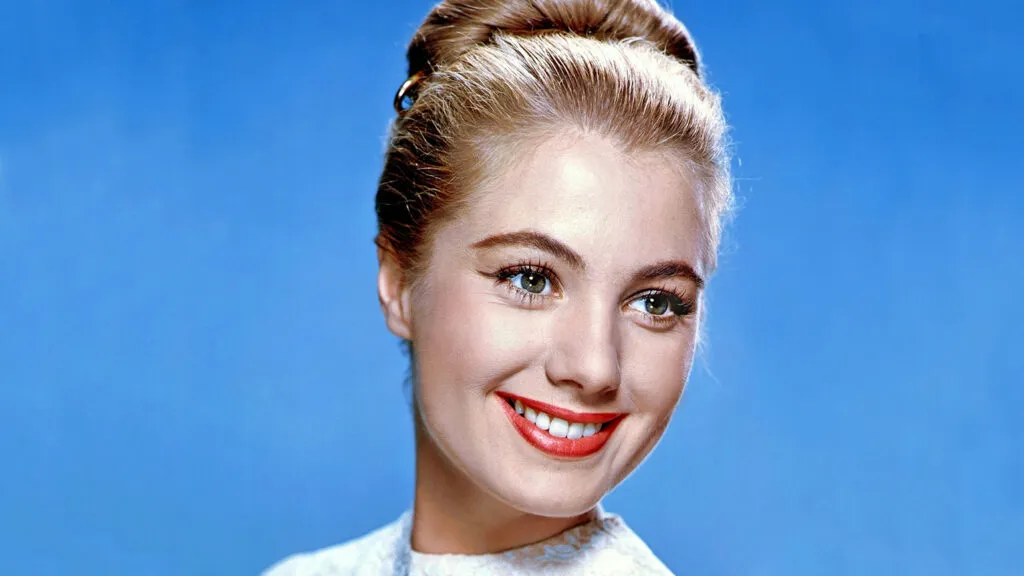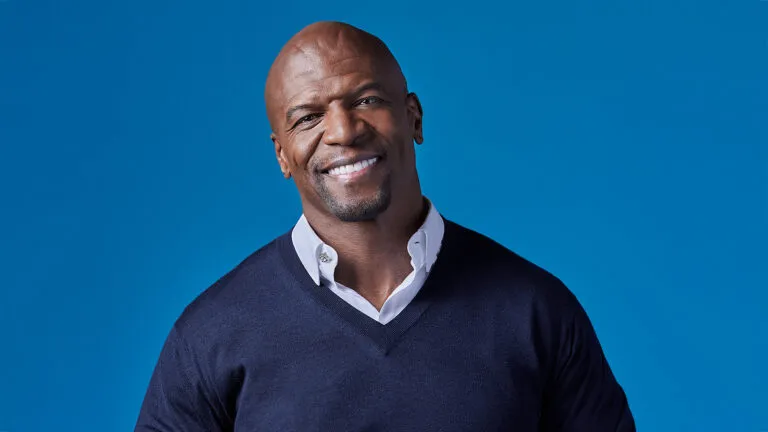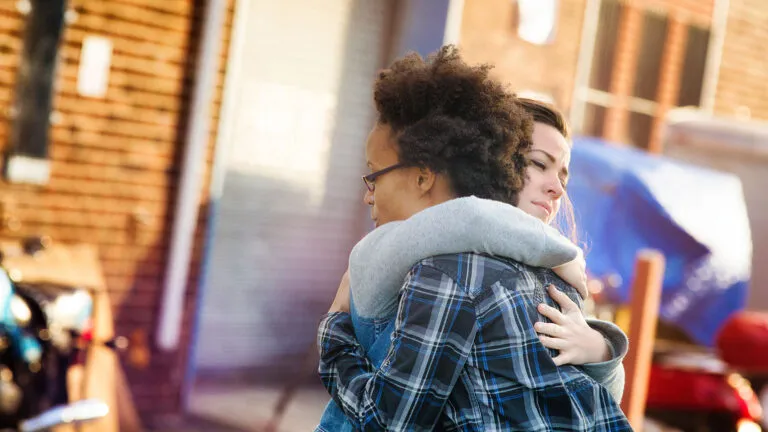Probably each of us can remember a time when our faith had to grow up. Let me tell you about one of those growing times that meant a lot to me.
I was a young actress, married and eight months pregnant with my first child. My husband, Jack, and I were at home in California when a call came from my parents in Pennsylvania. The doctor had found a spot on my father’s lung that would require surgery.
That was bad news, of course, but things seemed under control. Then after Dad got off the phone, my mother said softly, “Shirley, your father is terrified.” Those words did something to me. When I hung up, I realized that for the first time in my life I too was afraid, and I wondered why.
ENJOY THESE GUIDEPOSTS BOOKS FOR FATHERS
As a little girl growing up in the town of Smithton, Pennsylvania, I was a tomboy. There wasn’t a tree too tail for me to climb or a fish clever enough to escape my line. On sunbaked days, my friends and I would scamper two miles down country lanes to the swimming hole at Jacobs Creek, daring each other to be the first one to dive from the rocks into the chilly water. I wasn’t afraid of the dark, or even of walking through the woods all by myself.
My mother was just the opposite. She was afraid of almost everything, and she was sure worried about me. When I was nine years old, she went to talk to our minister, a kind, wise woman in her sixties. “I’m worried about Shirley Mae,” Mother confessed. “She isn’t scared of anything. She is too adventuresome. I’m worried that something will happen to her.”
“Marjorie,” the minister answered firmly, “you can see in Shirley’s face that God is with her. It shines out of her eyes. He’s with her all the time and she knows it.”
When I heard that, I knew it was true. God was as constant a presence as my own father was, and my own father was pretty special. Paul Jones was the most confident, look-you-in-the-eye gentleman I’d ever known. He was a tail man with brown curly hair stylishly slicked down. A dapper dresser, he was never without a hat, even when we drove to Pittsburgh in his cherry-red Chevy to watch the Pirates play.
His weekday outfit was a pressed and tailored work suit. The Jones family was involved in a number of businesses in Smithton; my grandparents built the first hotel. Dad helped run the family businesses, but on summer days he always had time to take me—barefoot and pinafored—to Kraus’s Drugstore for a chocolate cone or a chocolate root-beer float.
READ MORE: PATTY DUKE ON TRUSTING IN GOD
But best of all were Saturdays. Smithton had only one little movie theater and it was open only on weekends. Each week it played a different picture. Mom didn’t especially like to go—which was odd, since she’d named me for Shirley Temple—but Dad took me each week, or made sure I had a quarter to go with my friends.
I always tried to stay for both showings of the film. My favorites were Judy Garland musicals, and I dreamed of singing in the movies like Judy did.
Music was my favorite thing of all. I’d sing at any opportunity—for family Christmas parties or around the fire at girls’ camp. When I was six years old, I became the youngest soloist in the church choir. I was never nervous about singing, never had any stage fright.
When I was 12, Rodgers and Hammerstein came out with a new musical called Carousel, and one of the songs from it, “You’ll Never Walk Alone,” became popular on the radio. It was my father’s favorite. Any time I was singing, he’d ask me to do that one. When I sang it in our white clapboard church, I saw Dad smiling in the pew.
That reaffirmed what I already knew: There really wasn’t anything for me to be afraid of. Both Dad and God were at my side.
The only other time I ever knew Daddy to be afraid was when I was 18 years old—and then he wasn’t afraid for himself; he was afraid for me. After high school I’d planned to go to college to become a veterinarian. But when I got a scholarship to the Pittsburgh Playhouse, my plans changed. I wanted so badly to be a singer and an actress that I knew I had to give it a try. I told my parents I was going to New York City.
Oddly enough, my mother was calmer about it than my father was. It was my father who worried about what would happen to a country girl in New York. One of the greatest gifts he ever gave me was to swallow that fear.
One autumn day, Mom and Dad drove to the Barbizon Hotel for Women in New York City and dropped me off. Even then I wasn’t afraid. My parents were 400 miles away, but I knew I wasn’t walking alone. I felt their caring, supporting presence as strongly as if they were there in person. This became representative to me of how God’s presence surrounded me, although He was unseen as well.
One of the first auditions I went to was an open call for chorus replacements for South Pacific. Richard Rodgers was there, and he asked me to sing for his partner, Oscar Hammerstein. Before I knew it, I was on stage as a nurse in South Pacific.
Then I had a small part in Me and Juliet. When that show started its national tour, Rodgers and Hammerstein gave me the lead. While we were touring, they arranged for me to fly to Los Angeles to screen test for the role of Laurey in the film version of Oklahoma! Although many of Hollywood’s biggest stars tested for the part, they gave it to a virtual unknown—me! The Saturday dreams of that little girl from Smithton were all coming true.
My growing up inevitably meant having my own life away from my parents and that safe family nest in Pennsylvania. I met and married actor Jack Cassidy, and we made our home in California. Within a few years I was expecting our first child, and I was thrilled.
But now, after the phone call from my parents, my emotions were all mixed up. Why did my father’s fear have such an effect on me? And what could I do?
Dad’s condition was safe enough that the doctor said he could enter the hospital after the baby was born. Jack and I were scheduled to tour shortly after the birth, and we made sure that one of our first dates was in Pittsburgh.
Daddy was so proud of our little son, Shaun. I was an only child, and a grandson was about the greatest thing that could have happened to him.
Yet as happy as that time was, we were all aware of something that was never spoken: It was obvious that Dad was afraid. Not of surgery, not even of his illness. He was only 49 years old and otherwise in good health. No, he was afraid of hospitals. He would practically pass out just walking down the hall to visit someone. The thought of checking in himself was overwhelming.
All too soon the visit was over. Jack and I were expected in Florida. As our plane taxied out of the Pittsburgh airport, I closed my eyes, trying to think of what I could do to help. Dad had always been there, giving me strength and courage. It was time for the tables to turn.
On the way to Florida I wrote my father a long letter. I told him how frightened I’d been before the cesearean section for Shaun’s birth—the first time I’d had surgery. I thanked him for the courage he’d always given me.
I had planned to write a short note, but it turned into a five-page letter, remembering all the special times we’d shared, and telling him how much he meant to me and how thankful I was to feel the constant love and support of a father like him.
The next time Mom called, she said my letter had fulfilled its purpose. When Dad got it, his fear left him and he was able to enter the hospital in peace.
Dad’s operation was successful, and the people in Florida were as warm as the weather. Things once again were on an even keel. Fear was the farthest thing from my mind—until a few days later when I answered the phone.
It was my mother. She was crying. “Your father is dead,” she said. It was sudden, unexpected. His lungs had filled with fluid and no one had detected it.
I was in shock. I managed to say we’d fly home the next day.
Here was the biggest crisis of my life—and my old bedrock, my father, wasn’t here to see me through it. His comforting presence would never be with me again. How could I make it?
One of the hardest things I’ve ever done was to perform that night, but I knew it was what Dad would have wanted. As often happens, singing comforted me. Until the last song.
I always closed with “You’ll Never Walk Alone.” That night of all nights I didn’t know if I could do it. But the music started and there was nothing I could do but start to sing Dad’s favorite song.
As I sang, it all came back to me. The root-beer floats, the red Chevy, Dad’s face as he sat in church listening to me sing this same song. I remembered our silver-haired minister with the little glasses sitting precariously on her nose—and I remembered what she had said about God being with us always.
It’s hard to explain, but something happened as I sang those words. I knew for a fact that the faith I’d had as a child was true. There is eternal life. My father had passed from this life, but he was very much alive. Even though he was no longer with me, caring for me, Dad had given me into the hands of a Father who was with me always. That was where my true courage had come from all along.
“You’ll never walk alone…”
As the song ended, I knew it was true. And I was no longer afraid.
For more inspiring stories, subscribe to Guideposts magazine.





